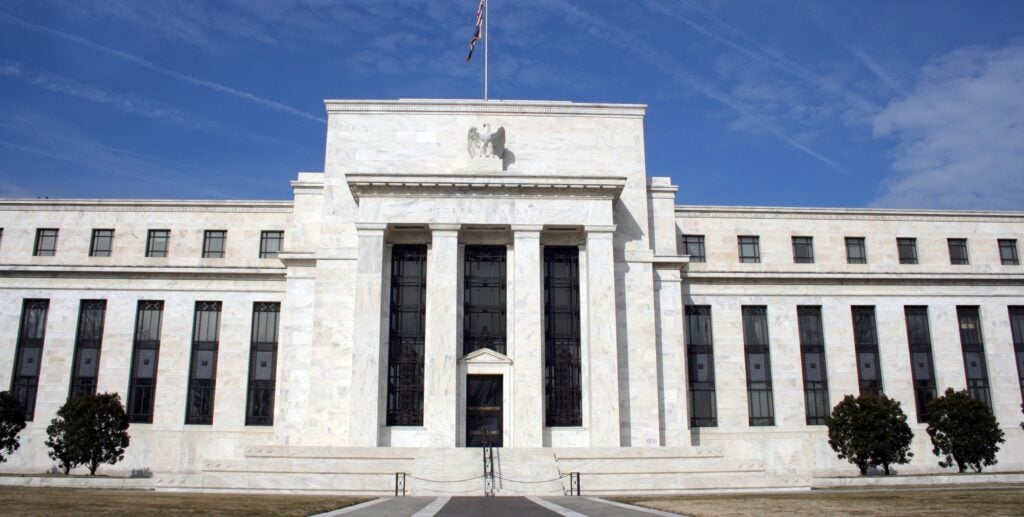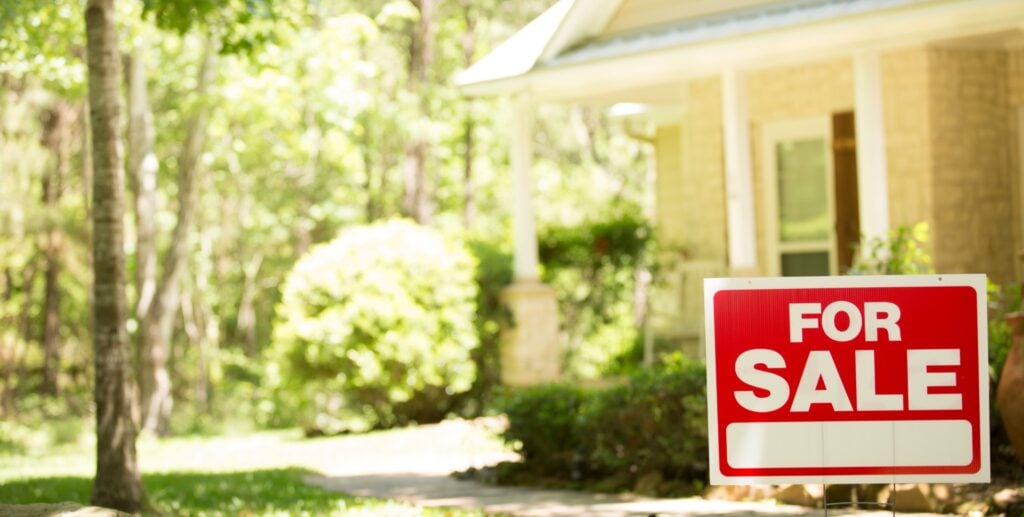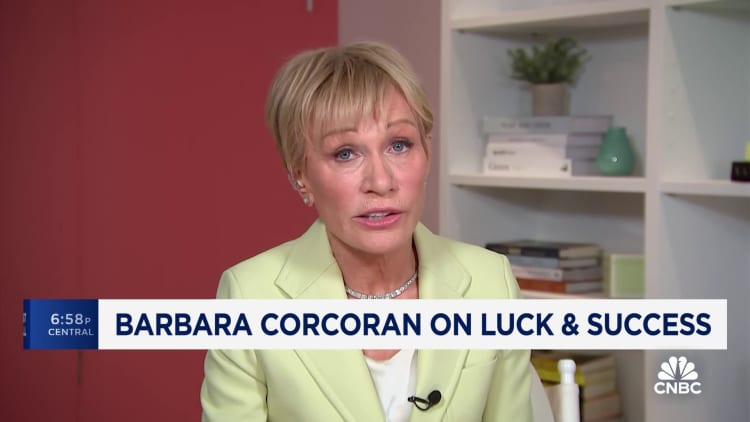David:
This is the BiggerPockets Podcast show, 9 1 4. What’s going on everyone? This is David, your host of the BiggerPockets Real Estate Podcast. And boy am I happy to be here today with my good buddy, Rob Abasolo, as we pull back the curtains and show y’all what we got going on with our own real estate projects.
Rob:
Good to be here once again, fellow host David. I’m, I’m excited about today. We have a good episode that we’re calling Catching Up with the Cast, where we will give you all of the hot goss of everything going on in our real estate portfolios in 2024.
David:
And nobody loves Hot Goss more than Robert. What’s your favorite Ryan Gosling movie, by the way? Is it, uh, behind The Pines? Was it Barbie? I
Rob:
Think I’m gonna Go Crazy Stupid Love, which I know is a bit, uh, unconventional for, for the Baby Goose Gospel himself. I know a lot of people like the Notebook like yourself, but yeah, dude, crazy, stupid. Love’s a good one.
David:
That’s right. On this episode, you’re gonna be learning about what Rob and I are doing in our own investment journeys to help inform you on yours. You’re gonna hear about how our portfolios are performing and what deals we’re actually working on a little bit into the day to day of how we’re pulling off deals in 2024, what strategies we’re using and the approaches that we’re taking. So without further ado, let’s get into today’s show. All right, Rob, let’s start with you. How is your portfolio performing right now?
Rob:
You know what, it is actually looking pretty dang good relative to where we were a year ago. I, I’ve been talking about this for a bit now, reinvesting back into my properties, all that good stuff, and I’m finally starting to see the results, uh, on a lot of the different properties that I’ve put my money back into versus, you know, I think a year ago I was really into this mindset of wanting to buy more and acquire more, but I’ve just tried to be disciplined and trying to do what we call portfolio revenue optimization. So I would say for the most part, um, other than maybe two properties, that one of them is down relatively significantly on the short term rental side. Uh, still profitable, but just not making as much as it was in 2021. Surprise, surprise. I had another property that took a, maybe like a two or 3% dip, and everything else, for the most part has either performed the same, if not significantly better, AKA or Scottsdale property. That one has really, uh, you know, that one’s turned a corner for us, which has been really, really fun to experience.
David:
Yes, it has. And hopefully more corners to turn in the future as we just slowly and steady keep adding amenities. So on that topic, are you buying more properties right now or are you increasing amenities like what we did in Scottsdale?
Rob:
That’s a very good question. The answer is yes, no, maybe everything. Um, I actually just released a video on my YouTube channel called Why I Stopped buying real Estate and Why You Should Too. And basically, I talked about this idea that we all get caught up in door count, um, which we’ve all been there like, right? Like we all want more doors. We, we’ve gone to the real estate meetups and everyone’s like, I’ve got 70 doors, and it’s like, oh, I need more doors. But I’ve really been more into this idea of making meaningful doors. So yes, I am buying more properties, however, the properties that I’m buying right now are bigger development deals. For example, we’re currently looking at like a six to $8 million hotel deal that would be effectively a 22 door complex. Much more meaningful to what I’m looking to do in the real estate world. I’m not necessarily taking down single family residences the way I once was. Instead of doing that, I am taking the same amount of money that I would typically have used to deploy into real estate. And really just putting that back into my portfolio. We’ll get into one of the deals that I’m talking about specifically where I did sink a pretty penny into it, but the results have been pretty astounding. What about you? Uh, are you buying more properties or what’s your approach been?
David:
Oh man, I bought a whole bunch of it one time. You and I have talked about that. Yeah, yeah, yeah. Then I ran into a whole bunch of headaches with the city. Long, long story there, but, uh, I bought in really nice neighborhoods. The neighbors did not want rental properties in their neighborhoods, and I came across problems I haven’t come across before. So I tried to get people in place to fix those problems. They didn’t really get any progress made. I finally switched to new people. I’m on my third group of people and they’re doing great. So these people have become employees of mine now. I pay them to be in-house property managers for my projects. And we are finally starting to see light at the end of the tunnel. I got maybe another couple months and I’ll have all the permits cleared the city good with everything. Basically the neighbors all get together and they call the city and made it seem like I’m Blackstone coming in to buy up their neighborhoods. And when we finally were able to get in touch with the city officials, we’re like, no, we’re not at all. We’re just regular people that are, you guys are crushing us with these, uh, permits that, I mean, basically Rob, they were telling me that I needed to tear down structures on the property that had been there for 80 years.
Rob:
Yeah, that’s crazy, man.
David:
Right? 80 years ago, someone didn’t complete the permitting process, and so they want me to take down the duplex that’s on the property, but good news is, is I’m turning the corner and once that’s done, it’s kind of like, all right, now let’s go clean up all the pieces, put everything back together, start rebuilding, and then look at start buying more properties. And I think things are gonna be looking good for me in the future. So in the market you’re looking at today, what headwinds are you seeing that are slowing things down for investors?
Rob:
Uh, yeah, I mean obviously I think the, the big elephant in the room is interest rates. We are seeing them go down a little bit. Um, and so as a result, I still think that we’re a bit in a stalemate where people have really low interest rate homes and they don’t wanna sell them because then where are they gonna go? You know, they’re gonna have to pay five, six, 7%. So I think that has ultimately kind of caused this really weird stalemate in the market. I think interest rates also make it really, really difficult to, I dunno, produce a meaningful cash on cash return, which isn’t really the, the golden metric it used to be, but it’s still very important to a lot of investors. And a lot of investors say, well, if I’m not gonna make money on this deal or if there’s not enough room for error, then I’m just not gonna do it. Other than that, I, I wouldn’t say like, too much more has changed because I would honestly argue that competition has kind of subsided a little bit and we’re no longer in this era where you have to make an offer that’s $50,000 over asking and waiving all your contingencies.
David:
Yeah, I would agree. I think we have an inventory problem more than anything. There’s not enough houses to buy. You mentioned what contributes to that. Part of it is lower interest rates, keeping people from putting their properties on the market. And that’s further compounded by people don’t wanna sell their house because what are they gonna buy? There’s not much out there to buy. So there’s just not a lot of options. So demand goes up, supply doesn’t keep up. We’re still not really building many houses. So the good news is you’re not having to pay massively over asking price in a lot of markets like you were before. The bad news is it’s very hard to get cash flow. So if you wanna be buying real estate now, you kind of gotta take a longer term approach. So you can’t just set it and forget it now.
David:
You have to always be thinking about how do I get a leg up on the competition? What’s going on in the algorithms? What are the people who are booking short term rentals looking for? What are tenants and markets looking for? How do I get into a new niche like medium term rentals? What markets does that work in? What markets are other investors missing? It’s sort of becoming, in a sense, like a day trader in stocks. Like, I gotta know everything going on in the market so that I can make these like minute, quick adjustments, which is great, which is why podcasts like this are that much more valuable because if you don’t know what’s going on and your competition does, they’re gonna beat you.
Rob:
Yeah. Uh, I guess I’d like to clarify too a little bit. I said that I’m not buying as much. I mean, I’m still buying for the purposes of cost segregations and tax benefits. I’m just not doing, I’m just, I I’m approaching real estate very differently. And so yes, 2024 is a little bit more competitive. I’m kind of, I’m not gonna say hedging my bets, but I’m, I’m changing my strategy. I’m doing a lot more off market and creative finance deals, which is how I’m able to make things pencil for my personal strategy a lot more, I don’t know, meaningfully. So we can actually talk about this as in, in this next deal if you, if you’re down,
David:
I was just getting ready to ask you man. Alright, we’re gonna take a quick break, but on the other side, Rob and I walk through details of real deals that we are doing in today’s market. So stick around,
Rob:
Welcome back, friends, frenemies, investors, and everyone in between. David and I are catching up on what’s working for us in our portfolios today, specifically what we’re learning from our deals right now that you can apply right at home.
David:
That’s right. And you’re up first in the hot seat. Rob, tell us about the deal that you are calling the pink pickle.
Rob:
Okay, so the latest deal that I’ve finished, um, I started this back in, hmm, back in May. So it’s honestly, it’s taken a little bit of time, but, um, this is in Austin, Texas. Um, the strategy that I used to acquire this property was creative finance. It was actually kind of a mixture of strategies. So I was able to acquire this creative finance and it basically turned into what we call a brrrrster here at BiggerPockets, which is a full on renovation, buy, rehab, rent, refinance, repeat. That’s the typical method. But I bought, I bought it, rehabbed it, short-term, rented it, and now I’m probably gonna refi and do that strategy. But it’s been a whole journey for me, man. I spent $440,000 for this specific property. I invested pretty heavily into the design of it. I would say the a RV on this property is in the neighborhood of $700,000. Uh, which actually isn’t like a, I know that sounds like a really big increase in value, which it is, but I also invested a significant amount of money into this property. So I would say it’s actually probably a little closer to a wash. I’d turn a small profit if I were to go out and sell it. But I’ve had some bumps and bruises on this one. I’ll pause for questions.
David:
All right, so let’s get into this thing. Uh, and by the way, bumps and bruises are not uncommon in this market. I basically was in a fiery dumpster fire of a car crash, so, uh, don’t feel bad Rob. ’cause it happens to the best of us. All right. I’m sure, knowing you that you bought a short term rental, tell me what your intention was going into this property.
Rob:
Yeah, so this one was supposed to be a a, a nice little creative finance flip. Uh, it’s called a sub tail, where you basically creatively finance the property while you rehab it, and then you retail it and sell it. So I came into this thinking it was gonna be a flip and that I was gonna make, you know, I don’t know, $50,000 on it, 75, something like that. That was the initial idea as I got into the flip, a lot of skeletons in the closet, if you will. Uh, and in between the studs and two by fours. And pretty much everything was wrong with this house.
David:
Side note, we may need to rename this podcast between the studs. You just gave me a great idea. <laugh> like between Two ferns? Yeah, between two studs could become the new name for the bigger podcast.
Rob:
That’ll be our YouTube series.
David:
Yes. All right. As you were,
Rob:
Yeah. So it was meant to be a flip and I was gonna come into this thing and, uh, I was gonna have to invest, you know, I, I think it was initially the budget was like a hundred and the upside was I was gonna make like up to a hundred thousand dollars on the, on the exit for this. Well, the Austin market really corrected itself very quickly in the time that I owned this property. And honestly, I’m kind of glad because I, I waited about a month, month and a half before I started this flip. And had I started immediately, I would’ve been in the middle of like a strategy that wasn’t gonna work because what I found out with this specific property was basically the money I was gonna have to spend a ton of money to break even on it. And I was like, dang, that’s never a good place to be having to spend a hundred thousand to just make your money back.
Rob:
And so I quickly thought to myself, well listen, how can I take a losing situation and turn it into a winning situation? How do I make lemonade outta lemons? And so I just decided, well, hey, I’m rehabbing this house, I’m gonna make it super nice. Why don’t I just make it like a super amazing short-term rental, which is eventually, uh, what this property ended up becoming. And I ended up really creating what I think is something, uh, I think it’s very special. We call it The Pink Pickle. It’s a bachelorette party house in Austin, Texas. If anybody wants to check it out, you can go to pinkpickleatx.com and it’s full. I mean, it’s, it’s very pink, uh, very, very, very, very pink. But it really hits on one avatar.
David:
Can confirm. Yeah. Super pink
Rob:
<laugh>. It is. But it’s amazing, man. And, um, it’s honestly like been a very creative experience for me to kind of do this. Uh, and I’ve never done anything like it. So it’s actually turned out to be what I think will be the coolest property in my portfolio.
David:
All right. I’m gonna make you give us a little more detail here, right? Okay. Other than just pink, like tell me what’s in these rooms. Tell me what you got hanging on the walls. Tell me about any extra design features you brought in. Walk me through this.
Rob:
Well, you know, I love my pickleball, right? So we’ve got a, like a hot pink pickleball court in the backyard. Um, we’ve created an amazing above ground pool. So a lot of people ask like, how can I add value? Pulls out a lot of value on the short term rental side of things, but I didn’t wanna spend a hundred thousand dollars on a pool. So what we did is we built an above ground pool and we built this whole wraparound wood deck around it, and it looks like a really premium, like really, really nice pool. Dude, I can’t believe we pulled this off for like $15,000. So now we got an amazing pool. We have a ton of murals. Uh, one of the murals says like, how do y’all, another one says, like, it’s not my first rodeo. Yeah, yeah. We’ve got neon lights that say cosmic cowgirl.
Rob:
Um, so, and then like obviously all these murals are like a mixture of hot pink and purple and all that stuff. And one of them says, lucky you. But I would say the most insane feature on this entire property, I don’t know if you saw it, but, well, first of all, there’s a pink dinosaur in the backyard. We found it at like a junker yard. And we went and we, it was green and we, I can see this. Yeah, we, uh, basically painted it like hot pink. That was cool. But the most insane feature at this property is there’s a red button when you walk in with a giant sign that says, do not push this button.
David:
Don’t push this
Rob:
Yeah. And then the moment you push the button, the lights turn off, a disco ball starts turning, and then Abba dancing Queen starts playing for one minute and you can’t stop it. So the idea is it’s our hype button. So, you know, bachelorettes come in and they’re like, oh, we need to get hyped up. And they push this button and then boom, like they can dance for a minute and then leave the house. So we have a lot of like, things like that.
David:
How’d you pick Dancing Queen to be the song that played?
Rob:
Um, well, you know what? I was, uh, advocating for Shania Twain, uh,
David:
Man, I feel like a woman.
Rob:
Yeah, that one Uhuh because that, that’s, you know, that’s my song right there. But, uh, I interviewed several ladies, I asked them for their opinions and they all agree that Abba’s just very iconic to that, to that demographic. So, you know, Hey, I, I had to listen to my avatar, you know, let
David:
Me know in the comments everybody what song you would have put. Had this been your property and you wanted something to come on, uh, I’m surprised you make me feel like a natural woman didn’t make the shortlist there. All right, so you also have pink felt on your pool table. You have cowboy hats hung on the white wall. Look like you have kind of like a bar set up with like a a yes look a hole in the drywall between rooms. I did something very similar on a cabin of mine in Blue Ridge, Georgia where I converted a garage and I basically had like, uh, a wall like separating two rooms and it has to be there ’cause there’s a beam, so you can’t get rid of the wall. But I did what you did. I punched a big hole in the wall and then I put a bar so you could kind of pass through drinks between the two spaces. Right. Can you share what you did there?
Rob:
Yeah, so that was an idea for my contractor. Um, and he was basically like, Hey man, your space is kind of closed, but I think if we knocked this down, it is a load bearing wall. We’ll have to put in a beam. But he is like, it would completely open up the space and it wasn’t really a cheap thing for him to do, but we all agreed it needed to be done. And it, man, it really just changed. I mean, I would live in this house now. It’s absolutely amazing. In that same room, we’ve basically created an open game room concept, but like you said, it’s got a pink pool table on it. And then there’s what we call a selfie vanity station. So we have like a, like a, a wall that’s all pink wallpaper with about six or seven mirrors and six or seven bar stools where all the ladies and they can get ready for a night on the town to go to sixth Street in Austin. So really, I’ve gotten so much creative sort of fulfillment from this because I’ve never really approached my Airbnbs with really just hammering down on who that avatar is. And uh, that’s something that I’m starting to discover as well with the whole like pickleball court in Scottsdale, our avatar there is the pickleball player and they pay a lot of money for the three courts.
David:
Oh, that’s the plan words, the pink pickle pickle ball,
Rob:
That’s one of the play on words. Yes. Yeah. <laugh>, there’s, there are a few,
David:
We’ll leave it there now. I’m kinda jealous that you got a pink property. I, I need like the green cucumber, the, the greenhouse I needed one of my own and make it all green. <laugh>
Rob:
The dill pickle.
David:
The dill pickle. There you go. <laugh> like the, the disco ball makes green lights go around and you’ve got like artificial AstroTurf everywhere. What song would play Eye of the Tiger turns on when you push the button? <laugh>.
Rob:
I love it man. Yeah, that that’d be fun. Uh, but yeah man, the results, it’s a little early to say, but uh, we could dive into that and then you can get into your deal if you’re cool with that. Well
David:
Let’s hear, is it performing yet? Do you have it on the market? How’s it doing?
Rob:
I do. So we just listed it, I just checked April. We have about $7,800 on the books. My entire mortgage and everything on this property is about $3,000. So it, we initially, before all the renovations, if we just made it acute Airbnb, like you know, just doing my typical style, it was slated to make between like 40 to 60 probably around that $50,000 ra, ra uh, range. And now as a result to all of this, we think it’ll do a hundred k plus. So we’ve effectively added 20, $30,000 to the bottom line, which will be very significant from a cash flow perspective.
David:
Congrats man. That’s awesome. Pink Pickle ATX if you guys wanna check that out and get some inspiration for your own designs. And if you’re wondering why ATX is, because that’s how people like Rob from Texas that wanna look cool, talk about their hometowns. He lives in H-T-X-A-T-X, I dunno if they call it, do they call Dallas DTX?
Rob:
No, but I do travel to Portland, which is PDX.
David:
There you go
Rob:
I’ve actually only been there one time, but they do follow the same naming convention,
David:
Getting both useful and useless information all on the same podcast while you are entertained and educated.
Rob:
Okay. I can’t wait to hear the details of your deal specifically how you added, I don’t know, half a million dollars of equity with just $150,000 of work right after the break.
David:
And welcome back, Rob and I are here walking you through what’s working for us in today’s market. So let’s jump back in.
Rob:
Okay. So, uh, I know you’ve got a deal that you’ve been working on this this past year, so tell us about that. Yeah,
David:
I got a couple of them. So the one we’re gonna talk about today is in the East Bay of California, a city called Castro Valley. This is one of the nicer cities in the Bay Area. And uh, if you don’t know the San Francisco Bay area dynamics, it’s more than just the city of San Francisco. There’s a ton of small cities that surround it and make it up. You basically have polarized options. You have pretty expensive real estate that usually has high crime, rough tenant bases, not very desirable or you have relatively safe and stupid expensive. There is nothing in the middle out here. So Castro Valley would fall into that relatively safe, but stupid expensive. The school scores are gonna be high, the crime is gonna be low. You’re getting a lot of professionals that are there that have some really nice hospitals. It’s a good area, but you can’t get into that thing for less than a million bucks.
David:
Like every house pretty much is over a million dollars. Well I found this one when rates were just starting to go up and I saw that it was a three bedroom, one bathroom, about 1100 square feet. It was a very small property. The floor plan was a little odd, so you have to walk up the stairs to go into the house. All the houses on this street were built on Ray’s foundations. They basically had like a bi, like they were all on top of a big basement. But the garage itself was at floor level. ’cause you can’t have a Ray’s garage. So the idea would be you drive in, you park your car in the garage and you have to walk out of the garage and go up the stairs to get to your house. Or you go from the garage into a basement and then up a different set of stairs to get into the interior of the house.
David:
Well the house was sitting on the market at 950,000 and nobody was biting ’cause it was just this weird floor plan. It had one bathroom and it wasn’t that big. It’s a small house and for three bedrooms it’s very difficult to have only one bathroom. So they had just reduced the price to 850 and they thought they were gonna get a bidding war. Well I watched it after they reduced it about eight days in. To me that’s like this perfect period of time. If you go before seven days of pass from a price reduction, the seller’s expectations are still, I’m gonna get several offers and I’m gonna bid it right back up to the price I wanted. If you wait longer than that, you’re at risk of someone else coming in to buy it. So I jumped in right at eight days and I talked listing agent and said, do you have any offers? She said, no, we got several people looking, which is realtor, speak for it. Please write an offer. I just don’t wanna admit that that’s the case we’re at. There’s always gonna be several people looking. So I wrote the offer for uh, it was listed I think at 850. I wrote it at 825 with $30,000 in closing costs. So net it’s gonna be a little bit less than 800.
Rob:
So so like 795 or so, yeah, somewhere in there
David:
That’s about where the net would be. They countered back and then we went back and forth and we settled on 830 with 25,000 in closing costs. So we’re at about 805 now. The plan for this property was that there was some square footage that wasn’t included in the listing. It had a sunroom in the back and it also had in that basement, it had a part of the basement that was finished. It had like a bedroom that they had created to be an office. So it had drywall, it had a window, it had finished floors and they put a closet in there. It had electrical run to, it looked like a regular bedroom. You just get into it by walking through a dirty basement. It was weird. And then the area where the stairs went down from the house, they had also put laundry in.
David:
So they finished that area too. The rest of the basement was just, you know, exposed wooden beams and uh, electrical and the framing was all done. And then you have like this old garage. Well I took that room that was in the back of the house. I guess I didn’t mention that there was a room in the back of the house. It was kind of like right off the kitchen. It was an odd place for it. And then they had a sunroom in the back of the home that wasn’t included in the square footage. I basically combined the sunroom with that bedroom that was in the back and created a one bedroom unit like a junior ADU, right off the back. And I was able to put a bathroom and a kitchenette in that as well as its own laundry. So that’s like a little studio type of a property, A one one bedroom unit.
Rob:
So really fast. Tell me, tell me, because ADUs, they’re very popular in California accessory dwelling unit you just said um, a junior which is also known as a JADU.
David:
Yes sir.
Rob:
What is the distinguishing factor between both?
David:
Yeah, so an ADU is usually detached. It’s not connected to the property. It’s like a standalone structure and then a junior ADU has to be attached to the main property. It’s kind of like a little house tumor.
Rob:
Yeah, okay, that makes sense. So I actually have, I used to have what’s called like a bonus room under my house that we would rent. I’ve chosen to not rent it anymore, but what a lot of people have mentioned is, yeah, I should just convert it to a JADU and get it all the paperwork ready to rock because that’s very common in the Los Angeles area as a bonus room. But JADU, um, that’s basically if you wanna like convert like a garage or something like that too, right?
David:
Same idea. Yeah, the garage would be attached to the house. That’s a JADU. Exactly.
Rob:
Okay. Okay, that makes sense. Sorry, I didn’t mean to derail this, but some people at home may not know these strategies.
David:
That’s why you’re here, my man. Appreciate you. So we had that one bedroom unit that we converted in the back of the house. I took one of the bedrooms in the main house, the one that was right off the kitchen ’cause it’s weird to have a bedroom right off the kitchen. And I took it off of the main property, put it in that back one which left me with two bedrooms and one bathroom in the main house. And then I remodeled the kitchen. So I just made it look nicer. Now I have the appropriate square footage for a two bedroom unit. I’ve got a full family room, fireplace, dining room, remodeled kitchen and a bathroom with its own laundry. That’s like the main house. About 1100, 11 50 square feet. I’ve got that one bedroom in the back. And then I finished the basement and I occluded the attached garage.
David:
So you don’t really need garage parking that bad if the property has enough space because in California it doesn’t rain a ton. We don’t get snow, we don’t have a lot of inclement weather. You could survive without a garage, especially if you’re a tenant, you may be renting a car. It’s not your own car. So I took the garage area and I finished it and I combine it with the rest of the basement and the room that was already down there that already had laundry. And I built a bathroom and a kitchenette and I ended up with basically a three bedroom, one bathroom additional unit in the basement. Now all of this work more than doubled the square footage of this little property that was too little for anybody else to want down there. And I ended up with three units that can all be rented separately. So the plan is that that small one bedroom and the main house, two bedroom, I rent out two traveling nurses. There’s hospitals on that same street. So whenever they have placement agencies that need to put a nurse somewhere, this is like the first place that pops up for them. And then I rent out the basement unit as its own unit to a traditional person who just wants a place to live. Like somebody with a family that’s gonna want the additional bedrooms and doesn’t mind sharing a bathroom because they’re all a family.
Rob:
Okay, cool. So what was the square footage going into this property that was not captured in the, you know, in the appraiser’s office?
David:
So it was listed as, I believe 1150 and then there was probably like about 700 square feet that wasn’t included in the back of the house. That was the sunroom. And then there was another 1300 in the basement area that wasn’t included because it hadn’t been developed yet.
Rob:
Wow. Okay. So you mentioned you bought this for $795,000. It was about 1150 square feet. So that’s comes out to roughly $691 a square foot. Does it work, can you just extrapolate that out or not necessarily? Like if you doubled your square footage is every, is every square foot that you add to that property gonna be worth that $691? Is that how you’re able to increase the value?
David:
It’s close to it, but not the full 690 like that the basement that was converted won’t be worth as much as the main house. It’s not as desirable. The ceiling’s a little bit lower. It’s kind of a weird way to get into that basement. ’cause I had to create separate entrances for all the units. So you have to walk into the backyard, but it’s still close. Right? Maybe you’re adding another 500, $550 a square foot. So you took a property that was like 1150 square feet and you bump that thing up to like 3000 square feet and it’s in an area where real estate was already really expensive.
Rob:
Yeah, man, that’s, so that’s significant. So now the arv, the after repair value comes out to what with all the square footage?
David:
It’s about 1.3.
Rob:
Wow, okay. So you’ve added pretty close to $500,000 of equity somewhere in there.
David:
Yeah. And it costs about 150,000 or so to do that work.
Rob:
Dude, that is crazy. Now obviously this goes into several strategies, but the idea here is you’ll do a cash out refi, pull your out and then run ’em as rentals.
David:
That’s right. There’s a brrrr and I got three separate rentals and I’ll have two different strategies. So two of them will be medium term rentals and then the basement will be a traditional rental.
Rob:
Will you, do you think you’ll get all of your, I mean it sounds like it based on the arv, but it sounds you’ll get most of your money if not all of it out of this deal.
David:
Um, If I had wanted to, what hurt me was rates went up after I bought it. So once it was finished, I had decided like I don’t wanna pull all my money out of the deal because I don’t like how the high the rates went. So I could have yes, got it all out. I just didn’t do that.
Rob:
Yeah, yeah. Because then the interest rates would’ve maybe made the cash flow not as appetizing.
David:
Yep, that’s exactly right. But this is a great example of how in today’s market, you can’t just try to buy something out of the box with your pink pickle. You went in there and you put work into thinking about this. You hired a designer, you were intimately involved in the creation of this project and how it needed to look. You said, Hey, as it stands it would make this much, but if I do this I can double how much it makes. Same for me. I saw potential in a property that other people missed. I took advantage of a property that was sitting on the market longer than it normally would have because of what we call functional obsolescence in the real estate space. And then because I listened to the BiggerPockets podcast, I knew about medium term rentals and traditional rentals. I had all these tools that I could pull outta my tool belt to make a deal work just like you.
Rob:
Very cool man. Yeah, you know, if I’m being totally honest, even on the pink pickle, like I could cash out refi and get a, a pretty significant amount of money back, but I don’t need to. And I fi I’m fine with, I don’t, I mean I really like that my, it’s gonna be a crazy cash flow machine the way it is. So honestly, I might just wait it out and if I decide in a few months if interest rates are appetizing enough for me, I’ll do the cash out and complete the brrrr. But for now, I just really like that I’ve created a property that will make pretty dang good cash flow. So sounds like this property that you’re doing is also gonna be a cash flow machine too. It’s great. Congrats.
David:
That’s it. And when they’re in good areas like this, they’re gonna appreciate faster than what the national average does and in the future will be looking better. I like your advice there that you don’t have to pull your money out on a brrrr. You’re not losing the ability to do it, you’re just not doing it yet. If another opportunity comes out, you need some cash, that’s when you would go back and complete the burr and put it into the next deal. But if there’s nothing else available, just let it sit there and have a lower mortgage and have it cash flow stronger.
Rob:
Yep. That’s where I’m at. I’m just, uh, yeah, I, I don’t mind having equity at this time. Like I’ve worked so hard with my whole portfolio to get to optimize cash flow that’s working for me. So I’m happy to just kind of hang and be more, a little bit more methodical as we kind of get into the, the brunt of 2024. ’cause I’ve got some things I wanna do. Like I said, I’m doing some developments over here and looking at buying some stuff and going to the dark side of hotels. So yeah man, we’ll have to do another one of these pretty soon.
David:
Yes sir. And please go leave us a review wherever you listen to your podcast and follow us on the Apple and Spotify apps. Appreciate everybody, thanks for being here today. Keep an eye out for the next episode of the BiggerPockets podcast and Rob and I should be sharing more in the future. If you’d like to know more about Rob or I, you can get our personal information in the show notes. And don’t forget that BiggerPockets has an incredible full website. You could check out more information. This is David Greene for Rob, the Pink Pickle Prince Abasolo signing off.
Help us reach new listeners on iTunes by leaving us a rating and review! It takes just 30 seconds and instructions can be found here. Thanks! We really appreciate it!



















